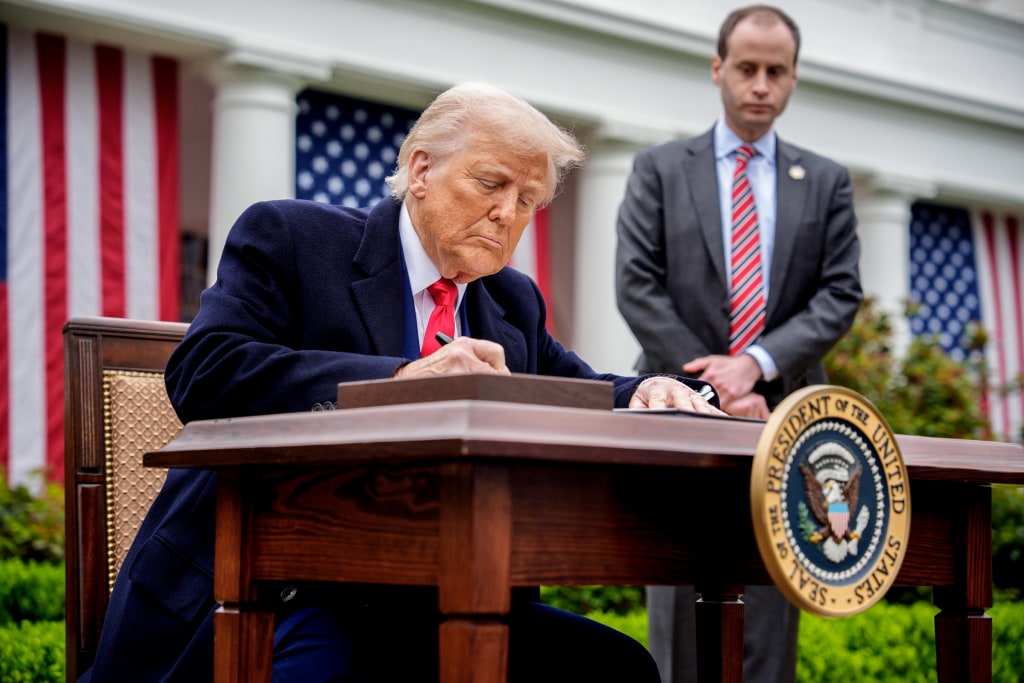
Congress Pushes Back on Trump’s Tariff Authority
The battle over trade policy is heating up in Washington as lawmakers move to reclaim congressional authority over tariffs. A bipartisan effort, spearheaded by Senators Chuck Grassley and Maria Cantwell, aims to curtail President Donald Trump’s ability to impose tariffs unilaterally. This move comes amid growing concerns over the economic impact of Trump’s aggressive tariff strategies, particularly against key allies like Canada.
The newly proposed Trade Review Act of 2025 seeks to reassert Congress’ constitutional role in trade policy. Under this legislation, the president would be required to notify Congress within 48 hours of imposing new tariffs, providing justification and an economic impact assessment. Congress would then have 60 days to approve or reject the tariffs; without approval, they would automatically expire. This initiative underscores a broader frustration among lawmakers about unchecked executive power in trade decisions.
The pushback from Congress follows a rare bipartisan vote in the Senate that overturned Trump’s tariffs on Canadian goods. While the measure narrowly passed with 51 votes, it saw support from key Republican senators, signaling growing discomfort within the GOP over the administration’s trade policies. Trump’s tariffs have sparked concerns over rising costs for American consumers and businesses, with critics arguing that they hurt domestic industries rather than protect them.
Also Read:- Wall Street Shaken: Dow Futures Plunge Amid Trade War Fears
- Stephen Curry Shines as Warriors Defeat Lakers in High-Stakes Showdown
Senator Cantwell, a Democrat from Washington, emphasized the need for a balanced approach to trade policy. She pointed out that arbitrary tariffs disrupt international commerce, strain relationships with allies, and lead to economic uncertainty. Grassley, a senior Republican from Iowa, echoed these concerns, highlighting that Congress has for too long relinquished its authority in this critical area. The legislation, modeled after the War Powers Act, seeks to establish clear checks on executive decisions that can significantly impact the economy.
Meanwhile, in the House, Democrats are exploring strategies to force a vote on similar measures, facing resistance from Republican leadership reluctant to challenge Trump directly. A discharge petition is being circulated to bypass GOP leadership and bring the issue to the floor. With the House’s narrow Republican majority, only a handful of GOP members would need to support the effort to push it forward.
Lawmakers backing the bill argue that Trump’s tariffs, particularly those targeting Canada, have caused undue hardship on American businesses, farmers, and consumers. Senator Tim Kaine warned of severe economic consequences if Congress does not take decisive action to mitigate the effects of these tariffs. He noted that Trump inherited a strong economy but has introduced policies that threaten its stability.
Despite the bipartisan nature of the Trade Review Act, its path forward remains uncertain. Partisan tensions continue to influence trade debates, and Trump’s firm grip on the Republican Party complicates efforts to pass legislation that could be seen as limiting his authority. Some GOP members acknowledge the need for greater congressional oversight but remain hesitant to directly oppose Trump’s policies.
As discussions continue, one thing is clear: Congress is increasingly willing to challenge the White House on trade policy. Whether these legislative efforts will succeed remains to be seen, but the growing discontent among lawmakers signals a shift toward rebalancing power in economic decision-making.
Read More:


0 Comments